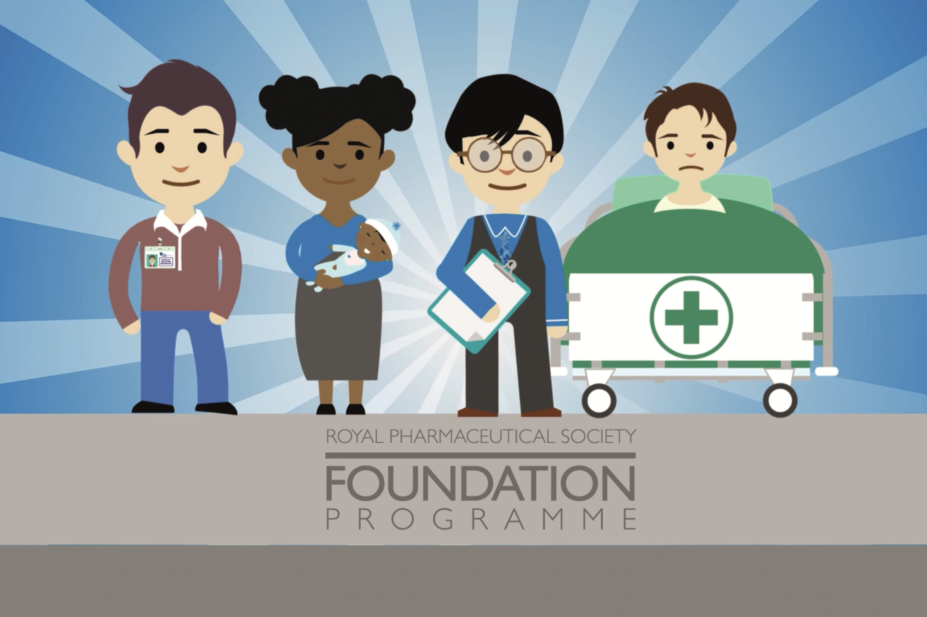
Royal Pharmaceutical Society
The RPS Foundation Programme is designed to provide newly qualified pharmacists, pharmacists returning to practice or pharmacists wanting to change sector the professional support in achieving the core skills, knowledge and behaviours that are essential for them to fulfill their role.
I was made aware of the programme by a Boots Healthcare Academy trainer and decided to complete the programme as I believed it would support my professional development and help advance my career as a pharmacist within community pharmacy. Undertaking the Foundation Programme has been a great opportunity which has helped me during the transition period between being a preregistration pharmacist and a newly qualified pharmacist.
Throughout the programme I have had countless opportunities to reflect on my practice, not only looking for areas where I can improve, but highlighting what I am doing well day-to-day in the care I provide to my patients.
Programme structure
The programme covers the first one thousand days of practice and is divided into two stages, Foundation Stage 1 and Foundation Stage 2. The learning throughout the programme has been delivered across various platforms, including study days, self-directed learning and eLearning modules. The Boots programme which I am currently completing consists of eight study days delivered at a regional training centre, presented by a Healthcare Academy trainer (tutor).
The tutor is the key contact throughout the course, not only leading the study days and coming into the store to help with the completion of work-based assessments, but also providing excellent support through frequent conversations via email or telephone regarding the programme. I found these conversations incredibly helpful as it gave me the opportunity to regularly assess my progress.
The study days in particular have been a highlight of the Boots Foundation Programme during which various learning modules are covered to help support my practice. This has ranged from clinical governance to people management. Study days also provide an excellent opportunity to network with other foundation pharmacists and we can learn from each other’s experiences as newly qualified pharmacists.
Work based assessments
Progression through the course has consisted of completion of work-based assessments and building a portfolio of evidence which I then reviewed at the end of the foundation stage with my tutor. During the programme I have frequently used the RPS Foundation Framework, a tool available to help evaluate my progress and to help identify areas for development. This framework consists of competencies which must be demonstrated and evidenced during the first one thousand days of practice and is necessary for progression through the course.
A fundamental part of the programme has been the work-based assessments, normally involving a visit from the programme tutor. The idea of these visits at first was a little bit unnerving but throughout the first stage of the programme I quickly began to realise how invaluable they were in helping me improve my practice. The support provided during the programme by the tutors was fantastic and the visit days were equally good.
Each assessment highlighted a different learning opportunity and having a very experienced pharmacist as a tutor allowed the perfect chance to ask questions and receive in-depth feedback. The assessments are not only a good tool to find learning opportunities but also great for pinpointing the areas of my practice that I am doing well in.
Another tool used during the programme is an online Peer Assessment which was used to get feedback from colleagues who I work with day-to-day. It can prove difficult to get feedback in some circumstances, especially if someone is not comfortable providing constructive feedback in person, but this tool enabled me to receive comments from colleagues who may not have given feedback otherwise. Similar to the workplace assessments, this tool also built up my confidence in terms of my practice having read the positive comments.
Current progress
I have recently completed Foundation Stage 1 which involved reviewing my portfolio with my tutor. A Record of In-Training Assessment, also known as a RITA, was used as an overview to assess which competencies have been demonstrated and met during the first stage of the course. Completing RITA 1 of the programme was a great opportunity to not only see how my practice has developed since qualifying, but also to reflect on where I can improve as a pharmacist.
Prior to starting the course, I hoped that the Foundation Programme would consolidate and build on my skills and knowledge developed as a preregistration pharmacist. Overall, having reached the halfway stage of the RPS foundation programme, I have not only benefitted from being a foundation pharmacist but enjoyed the experience. I feel that my confidence and capabilities as a pharmacist have grown greatly due to the excellent professional support and learning opportunities offered by the RPS Foundation Programme.

About the Author:
Darren Pugh studied pharmacy at the University of Bath and completed his preregistration training in 2015 with Sheppards Pharmacy, an independent pharmacy based in South Wales. Since qualifying he has worked for Boots as a community pharmacist and is currently based in Cheltenham.
You may also be interested in
The importance of diverse clinical imagery within health education

Government should consider ways to prevent ‘inappropriate overseas prescribing’ of hormone drugs, review recommends
